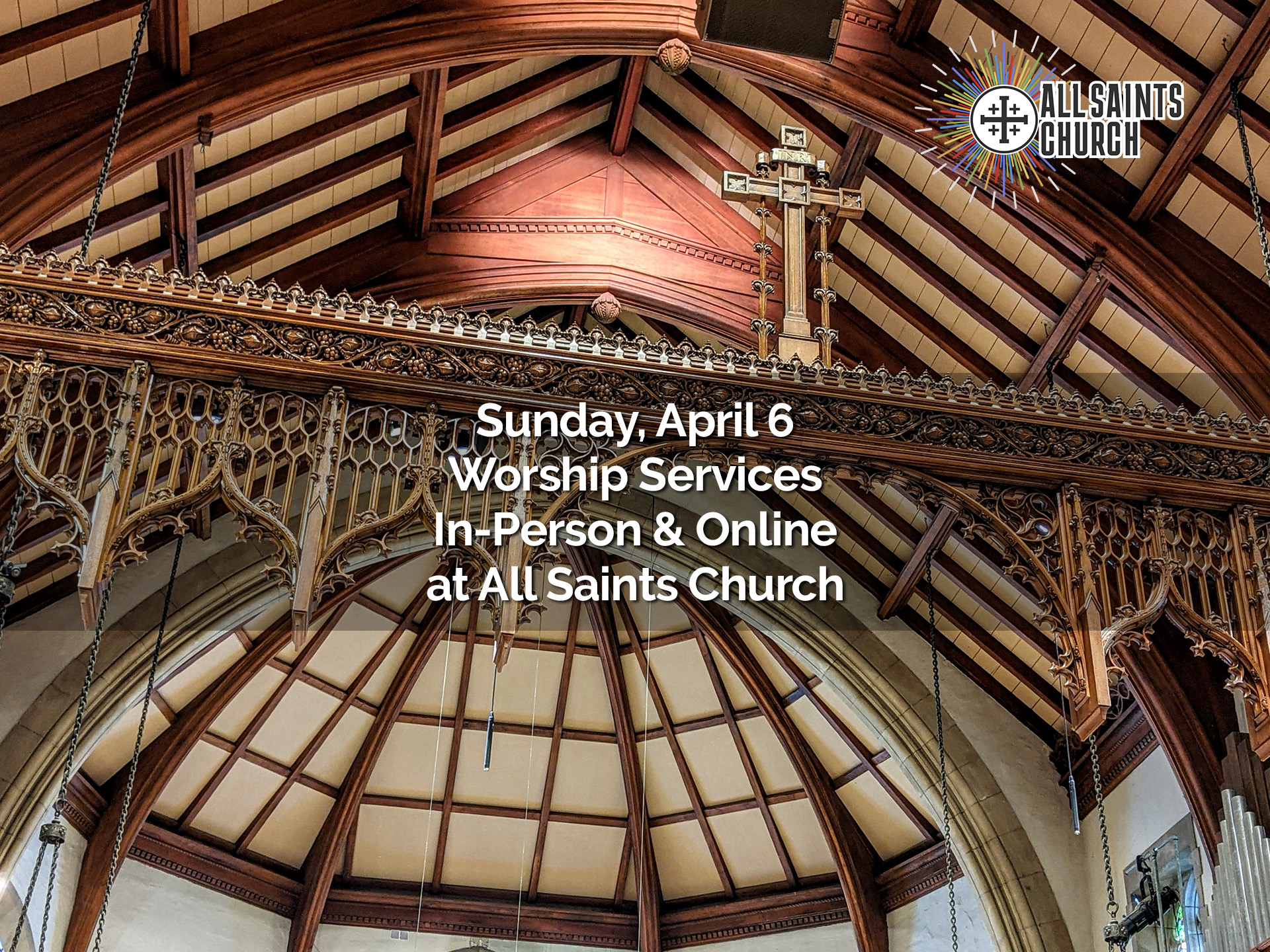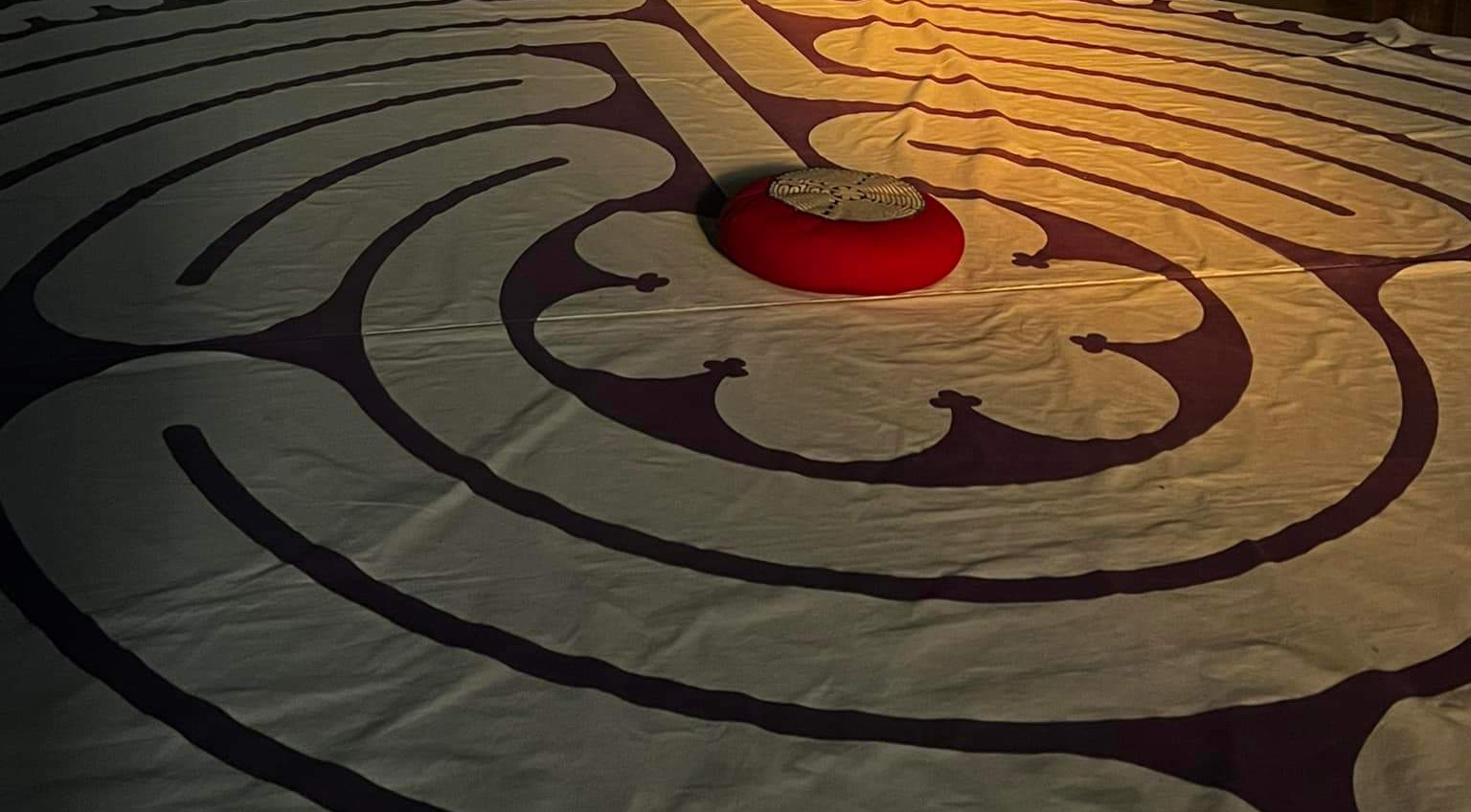by Mike Kinman, Rector of All Saints Church, Pasadena
The gospel isn’t meant to be gulped down on Sunday morning, but gnawed on through the week so it really becomes a part of us. You’ve got to work at it, like a dog with a good bone! Here’s the Gospel for this coming Sunday —the Fourth Sunday of Easter— with reflections on sheep and shepherds … and on both the cost and promise of discipleship. Gnaw away!
Fourth Sunday of Easter: John 10:1-10
Jesus said, “Very truly, I tell you, anyone who does not enter the sheepfold by the gate but climbs in by another way is a thief and a bandit. The one who enters by the gate is the shepherd of the sheep. The gatekeeper opens the gate for him, and the sheep hear his voice. He calls his own sheep by name and leads them out. When he has brought out all his own, he goes ahead of them, and the sheep follow him because they know his voice. They will not follow a stranger, but they will run from him because they do not know the voice of strangers.” Jesus used this figure of speech with them, but they did not understand what he was saying to them.
So again Jesus said to them, “Very truly, I tell you, I am the gate for the sheep. All who came before me are thieves and bandits; but the sheep did not listen to them. I am the gate. Whoever enters by me will be saved, and will come in and go out and find pasture. The thief comes only to steal and kill and destroy. I came that they may have life, and have it abundantly.”
The painting above is from a set of African Gospel art set in Mafa country in Cameroon, West Africa. The Mafa people portray the Gospel stories in an African village setting as they imagine them to be from the perspective of their culture in terms of dress, architecture, environment and customs. To learn more click here.
The Backstory – What’s Going On Here?
John 10 is in many ways the beginning of the end for Jesus. Throughout the past several chapters, he has been making increasingly bold claims about himself and his actions (like healing the man blind since birth in John 9) have increasingly vexed the Jewish authorities. Here, in “the shepherd discourse,” Jesus first calls himself the “door of the sheep” and that all who enter by him will be saved. Not only that, he — with clear allusion to the Pharisees — calls all who came before him “thieves and bandits” (the word bandit is better translated “insurrectionist” — which is what they would end up accusing Jesus of being). The lectionary cuts off this passage awkwardly, as in verse 11, we have Jesus’ second claim “I am the good shepherd. The good shepherd lays down his life for his sheep.”
Jesus is making a bold claim about his authority and relationship to the divine … one that will be proclaimed fully with his disciples on the night before his death when he says “I am the way, the truth and the life.” The Jewish authorities recognize the power of this claim and by the end of Chapter 10, they are trying to arrest him … signs of things to come.
A few things to chew on:
*The first image Jesus uses to describe himself is the shepherd … and the sheep-shepherd relationship is all about intimacy. They know him and he knows them. The shepherd calls each sheep by name and the sheep recognize the shepherd’s voice. There is an assurance of safety. There is trust. But there is more than that.
Our names are powerful. They describe who we are. They begin as the hope of our parents and they take on everything about us. In scripture, there is even more power to names as knowing someone’s name gives you the power not only to bless them but to curse them, too. Jesus as the shepherd calling us by name is about him having an amazing dual relationship — as a protector and guide for the whole flock but also knowing us inside and out individually. Having power to bless and curse us, but using that power to love, protect and guide us — not in some “one size fits all” way, but individually, one by one — and yet still as part of the larger whole.
Jesus also calls himself “the gate” — and John’s Gospel speaks of Jesus as “the gate” or “the way” with great exclusivity. Those who enter through the gate will be saved. That begs the question “what about those who enter another way?” What about Muslims, Jews, Hindus, and many other human expressions of religions and reaching out toward the divine?
John’s community was a separatist community who saw themselves as a righteous remnant. Their language particularly against “the Jews” has been used for horrible persecution that is certainly not of the love of Christ. As Christians, we can trust that the Word who existed before time and was expressed in human form in Jesus is “the way, the truth and the life” … that if we feel this call, it is about our own call to enter through this gate. But John’s own poetic prologue in talking about Jesus as the enfleshed expression of an eternal pre-existing divine leaves open the mystery of God’s self-expression in other ways to other people in other times. If God has been expressed in Jesus, than God can be expressed in other ways, in other times. God is infinite and will not be contained.
What we can know and do is follow his commandment — which is to love one another — ALL people of all faiths and of no faith — with the self-giving love that Jesus did. And rejoice that God is not so small as to be absolutely known but a deep and wonderful mystery … and yet out of that mystery we are still intimately known and called by name.
Try This:
The vows we take are the gates we go through. Think of the vows you have taken — baptismal, godparent, marriage, ordination. Each one focuses your life and gives you a structure to experience the abundant life of God.
This week take a few minutes at the beginning of each day to review some of the vows you have taken. You can find the Book of Common Prayer online here if you need one. Then think of one small way you can live out that vow that day. And as you go to bed at night, review how you have done … how you have walked through that gate that day.
Write This
Names are important because they signify who we are. In some traditions, people take on a additional new name when they are baptized … a name that recognizes this change in their life. As you journal this week, think about the different names you have been known by in your life. Your given name, nicknames, pet names. What did each mean? How did each make you feel? And then think about if you could take on a new name – one that signified who you believe God dreams for you to be – what would that name be?
Whole Trust
“Do you turn to Jesus Christ and accept him as your savior?”
“Do you put your whole trust in his grace and love?”
“Do you promise to follow and obey him as your Lord?”
As much as we Episcopalians have re-emphasized the baptismal covenant in the last 40 years, it is these promises before that (part of the
“renunciations and adhesions”) that are what baptism — and our whole Christian identity — are all about.
It’s what “entering the gate” is all about. And if we read and say these promises without it giving us pause, well, then I wonder if we’re really
paying attention. In fact, probably “giving us pause” is way too light. If we read and say these promises without quaking and reaching for the Depends, we’re probably not paying enough attention!
Think of those words — WHOLE TRUST. Entering the gate, promising to put our WHOLE TRUST in Christ’s grace and love, is just begging God to mess with us. It is begging God to take our lives and turn them inside out and upside down. To “take us by the hand and lead us where we don’t want to go.”
There should be a surgeon general-like warning label on the baptismal font and on every copy of the Bible and Book of Common Prayer.
WARNING: Following Jesus will be hazardous to everything you hold dear.
And yet this is the gate we are called through. And we are promised that on the other side is “life abundant” — the kind of life that is like biting
into the ripest peach and having the tartness peck at the corners of our mouth and the juice dribble down our chin. On the other side is life so beautiful and deep and rich we can’t believe we used to call anything else “life.”
An example from recent history is the brave children who formed the Student Nonviolent Coordinating Committee in the 1950s and 60s. They saw a better life — a life where the abundant gifts of liberty were available not to just some but to all. But they knew they had to risk everything they held dear if it was to come about. And so they signed their wills before they got on the buses for the Freedom Rides.
They knew that the Beloved Community of God doesn’t come without great cost. But they knew the Beloved Community makes it all worthwhile.
Alan Jones, former dean of Grace Cathedral in San Francisco once said, “the hardest thing to do is to give up something good for the hope of something better.” That’s what entering the gate is about. It is about giving up much for the hope of gaining much more.
And we don’t face the challenges and gifts of this new land alone. Like them, we go through together. It’s why we take those promises not alone but together.
We are here to usher in God’s Beloved Community — together. The Beloved Community of God doesn’t come without great cost. But the Beloved Community makes it all worthwhile.
Check out the rest of Sunday’s readings
The Lectionary Page has all of the readings for this Sunday and every Sunday — click here for this Sunday’s readings.
Collect for Sunday — Pray this throughout the week as you gnaw on this Gospel.
O God, whose Son Jesus is the good shepherd of your people: Grant that when we hear his voice we may know him who calls us each by name, and follow where he leads; who, with you and the Holy Spirit, lives and reigns, one God, for ever and ever. Amen.
Want to read more?
“The Text This Week” is an excellent online resource for anyone who wants to dive more deeply into the scriptures for the week.



